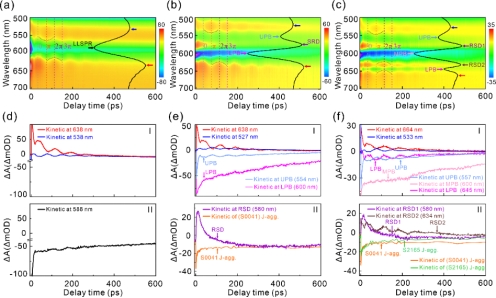At present, most of the studies on plasmon-exciton strong coupling are based upon a single exciton state, and only two hybrid quantum states are generated, which is not enough to meet the requirements of room-temperature quantum information processing based on multiple qubits. Therefore, it is important to develop the theoretical model and experimental platforms of strong coupling between a plasmon mode and many different exciton states. Based on the theoretical research (Phys. Rev. B 103, 235430 (2021)), the research group of Prof. Renming Liu has developed a quantum approach for accurately describing the strong coupling between a plasmon mode and multiple exciton states. By constructing the hybrid system of Au@Ag NR/S0041@S2165@2278 J-aggregates via the electrostatic assembly technology, the strong coupling between plasmons and three different exciton states is demonstrated, and the transient absorption of the hybrid system is also investigated using femtosecond laser ultrafast pump-detection technology. It is found that the mixed states generated by the strong coupling have a mutual modulation effect with the acoustic phonon oscillations of the metal nanocavities. This work not only provides a powerful theoretical tool for studying the multimode hybridization and coherent multiqubit manipulation at room temperature, but also provides ideal testbeds for investing charge-transfer transitions and developing nanophononic devices to probe electronic, thermionic, and phononic states.

The related paper entitled with "Strong coupling between a plasmon mode and multiple different exciton states" has been published in Science China-Physics, Mechanics & Astronomy. Postgraduates Junjun Ye, Yatao Pan and Dr. Guanghui Liu are the co-first authors, Profs. Renming Liu, Xia Ran and Lijun Guo are the corresponding authors. The research work is supported by the National Natural Science Foundations of China and Henan University.
Link to this paper: https://link.springer.com/article/10.1007/s11433-022-2029-9

 Research /
Research Achievements /
Science & Technology /
School of Physics and Electronics /
Content
Research /
Research Achievements /
Science & Technology /
School of Physics and Electronics /
Content


